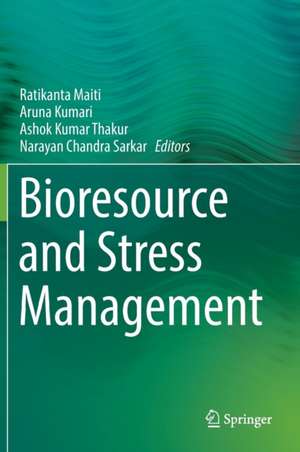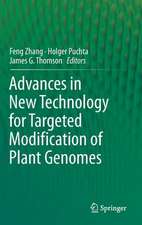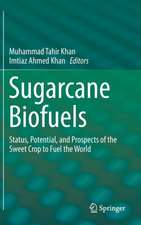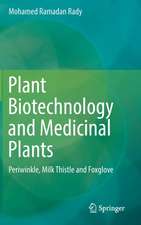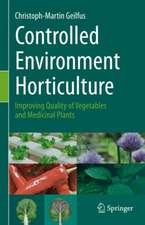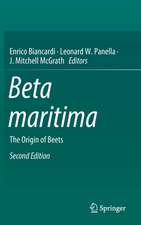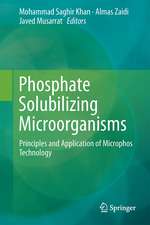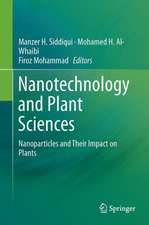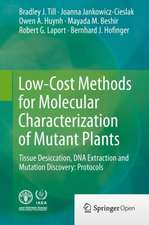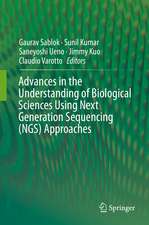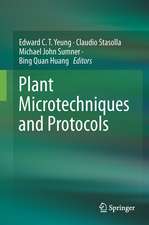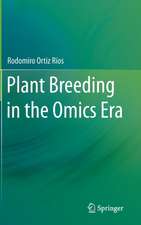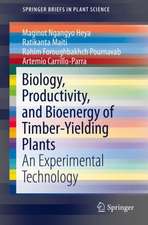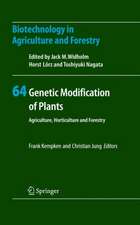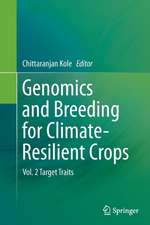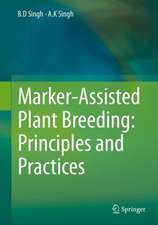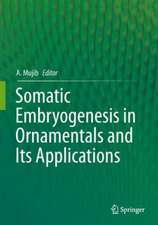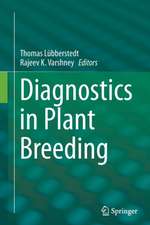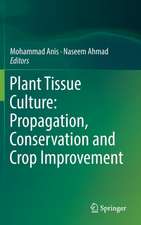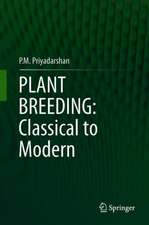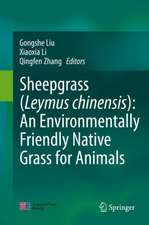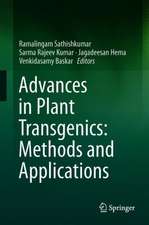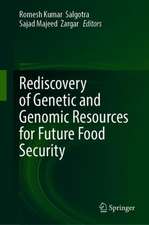Bioresource and Stress Management
Editat de Ratikanta Maiti, Aruna Kumari, Ashok Kumar Thakur, Narayan Chandra Sarkaren Limba Engleză Hardback – 5 aug 2016
| Toate formatele și edițiile | Preț | Express |
|---|---|---|
| Paperback (1) | 947.85 lei 6-8 săpt. | |
| Springer Nature Singapore – 7 iun 2018 | 947.85 lei 6-8 săpt. | |
| Hardback (1) | 955.25 lei 6-8 săpt. | |
| Springer Nature Singapore – 5 aug 2016 | 955.25 lei 6-8 săpt. |
Preț: 955.25 lei
Preț vechi: 1164.93 lei
-18% Nou
Puncte Express: 1433
Preț estimativ în valută:
182.79€ • 188.58$ • 152.54£
182.79€ • 188.58$ • 152.54£
Carte tipărită la comandă
Livrare economică 26 martie-09 aprilie
Preluare comenzi: 021 569.72.76
Specificații
ISBN-13: 9789811009945
ISBN-10: 9811009945
Pagini: 550
Ilustrații: XV, 276 p.
Dimensiuni: 178 x 254 x 18 mm
Greutate: 0.73 kg
Ediția:1st ed. 2016
Editura: Springer Nature Singapore
Colecția Springer
Locul publicării:Singapore, Singapore
ISBN-10: 9811009945
Pagini: 550
Ilustrații: XV, 276 p.
Dimensiuni: 178 x 254 x 18 mm
Greutate: 0.73 kg
Ediția:1st ed. 2016
Editura: Springer Nature Singapore
Colecția Springer
Locul publicării:Singapore, Singapore
Cuprins
1. SocialNecessity of an Efficient Management and Conservation of Bio-resource andStress Management (RatikantaMaiti).- 2. Socioeconomyof Bio-resource and Stress Management (SamaresDas).- 3. ClimateChange: It’s Impact on Bio-resource and Sustainable Agriculture (ArunaKumari).- 4. NaturalResource Management (RatikantaMaiti).- 5. Agrotechnologyand Crop Diversification (A.V.Ramajaneyulu).- 6. PhysiologicalBasis of Crop Productivity (RatikantaMaiti).- 7. BioticStress: Diseases (SusantaBanik).- 8. BioticStress: Insect Pests (RatikantaMaiti).- 9. ResearchTrends in Abiotic Stress Resistance of Crops (JorgeSarquis Ramirez).- 10. Essenceof Plants or Crops for Adaptation: Learning Lessons for Sustainable Use (Ratikanta Maiti).- 11. Breeding,Genetics and Biotechnology (ArunaKumari).- 12. Post-HarvestTechnology for Reducing Stress on Bio-resource: Recent Advances and Future Needs (SomeshSharma).- 13. RecentTrends in Seed Science and Technology (AshokK. Thakur).
Notă biografică
Ratikanta Maiti,Ph.D., D.Sc., is a renowned Botanist of international repute withspecialization in crop Physiology and Botany. He worked for nine years as asenior botanist in Jute Agricultural Research Institute, Barrackpore (I.C.A.R.),Kolkata, West Bengal, and for 10 years as a senior Plant Physiologist inICRISAT, Patancheru, A.P., India. Then, he worked as Senior Professor andSenior Research Scientist (CONACYT, Mexico, for 18 years) in two Universitiesin Mexico for 20 years. During his scientific career, he has developedinnovative techniques for the screening of salinity and drought of severalcrops. As author of more than 30 books, he has won several international awardssuch as international Scientist award offered by IBC, Cambridge andEhanobotanist Award-2003 sponsored by Friends University, U.S.A. and U.N.D.P.and gold medal for India 2008 offered ABI.
Dr. Ch.Aruna Kumari is working as Assistant Professor, Department of Crop Physiology,at Agricultural College, Jagtial, Professor Jaya Shankar Telangana StateAgricultural University. She has seven years of Research Experience in variedICAR Institutes and in seed industry (Vibha Seeds). She is the Recipient ofCSIR Fellowship, Govt. of India during her doctoral studies. She has been an Authorin 2 books viz., Glossary in Plant Physiology, Advances in Cotton, Chilli. Herfield of specialization is Seed Dormancy.
Narayan Chandra Sarkar is a faculty member at Visva-Bharati, Department ofASEPAN, Palli Siksha Bhavana (Institute of Agricultural Sciences), Sriniketan,West Bengal, India. He has worked in Vibha Seeds, Syngenta India Ltd andNagaland University. He has received his PhD in Agronomy from Indian AgriculturalResearch Institute in 2005. His current research area is soil fertility inrice.
Ashok Kumar Thakur is a faculty member at the Dr. Yashwant SinghParmar University of Horticulture and Forestry,Department of Seed Science and Technology, indistrict Solan, Himachal Pradesh, India. He has obtained Ph.D. in 2002in Horticulture with specialization in Vegetable Breeding from same workingUniversity. He has 25 research publications, 04 manuals/books, 06 book chaptersand 07 extension publications in the form of popular articles, folders etc. He has experience in working with Vibha Seeds,Bharti Delmonte India Pvt Ltd, ACME Cold Chain Solutions Pvt Ltd. His currentarea of research is vegetable seed technology.
Dr. Ch.Aruna Kumari is working as Assistant Professor, Department of Crop Physiology,at Agricultural College, Jagtial, Professor Jaya Shankar Telangana StateAgricultural University. She has seven years of Research Experience in variedICAR Institutes and in seed industry (Vibha Seeds). She is the Recipient ofCSIR Fellowship, Govt. of India during her doctoral studies. She has been an Authorin 2 books viz., Glossary in Plant Physiology, Advances in Cotton, Chilli. Herfield of specialization is Seed Dormancy.
Narayan Chandra Sarkar is a faculty member at Visva-Bharati, Department ofASEPAN, Palli Siksha Bhavana (Institute of Agricultural Sciences), Sriniketan,West Bengal, India. He has worked in Vibha Seeds, Syngenta India Ltd andNagaland University. He has received his PhD in Agronomy from Indian AgriculturalResearch Institute in 2005. His current research area is soil fertility inrice.
Ashok Kumar Thakur is a faculty member at the Dr. Yashwant SinghParmar University of Horticulture and Forestry,Department of Seed Science and Technology, indistrict Solan, Himachal Pradesh, India. He has obtained Ph.D. in 2002in Horticulture with specialization in Vegetable Breeding from same workingUniversity. He has 25 research publications, 04 manuals/books, 06 book chaptersand 07 extension publications in the form of popular articles, folders etc. He has experience in working with Vibha Seeds,Bharti Delmonte India Pvt Ltd, ACME Cold Chain Solutions Pvt Ltd. His currentarea of research is vegetable seed technology.
Textul de pe ultima copertă
This book is a compilation of recent global measures to conserve bio-resources and manage biotic and abiotic stresses. It highlights emerging issues related toagriculture, abiotic and biotic stress factors, ethnic knowledge, climatechange and global warming, as well as natural resources and their sustainablemanagement. It also focuses on the consolidated efforts of scientists andacademics engaged in addressing a number of issues related to resource management and combating stresses in order to protect the Earth. Crop production and productivity have been significantly improved, however, there have been no corresponding practical advances in sustainable agriculture. This book offers a wide range of affordable approaches to managing bio-resources with a focus on sustainability. Lastly, it describes research highlights and future areas of research.
Caracteristici
Elaborates on research advances in bio-resource Emphasizes on management of biotic and abiotic stress in the context of current global warming and climate change Discusses on developmentof suitable strategies for efficient and reliable management of Bio-resource
